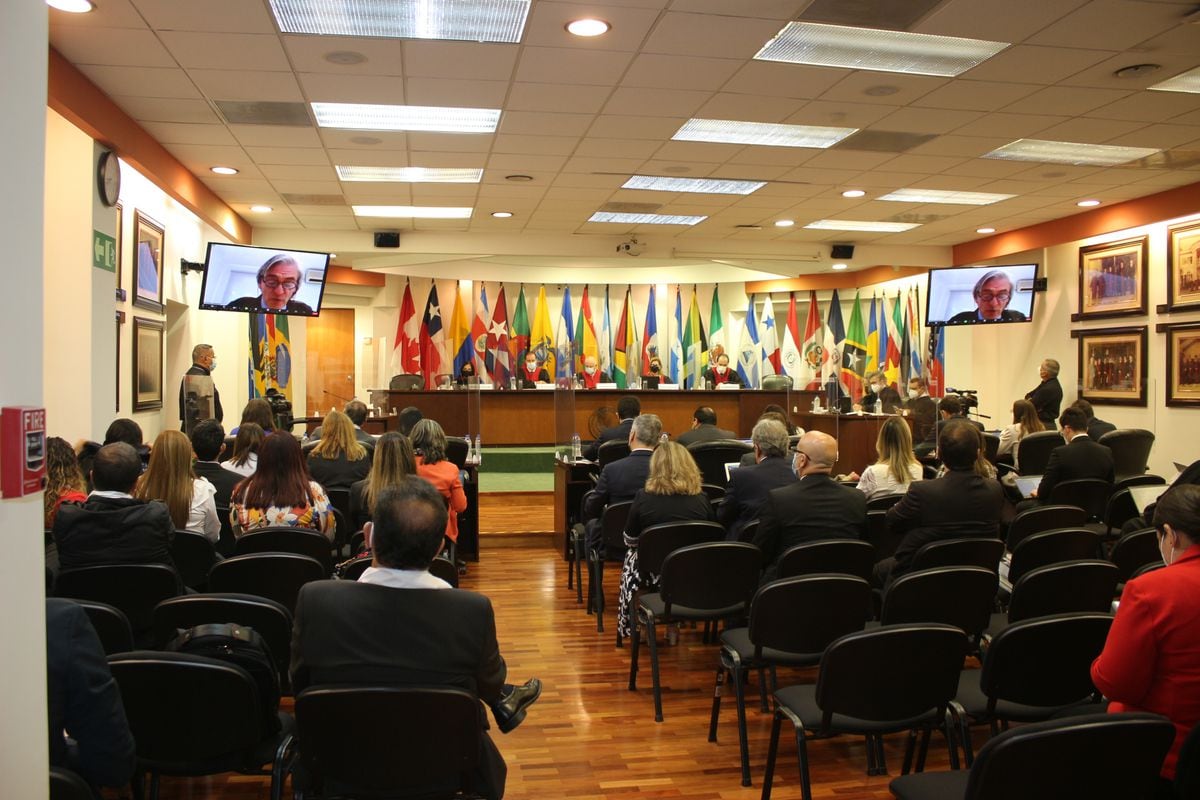A session of the Inter-American Court of Human Rights, on May 13, 2022. IACHR
The Inter-American Court of Human Rights on Wednesday held the Argentine State responsible for obstetric violence in the case of Cristina Brítez Arce, who was 40 weeks pregnant at the time of her death.
In the ruling, which sets a precedent at the regional level, the court requests the South American country to launch a campaign to prevent this type of violence against women and make visible the rights of pregnant women.
For the court, the Argentine State violated the right to life, personal integrity and health of this 38-year-old woman, who died on June 1, 1992 in the Ramón Sardá public maternity hospital in Buenos Aires.
The judges also considered that her pregnancy had risk factors that were not adequately addressed by the Argentine health system.
Brítez Arce went to the hospital due to fever and lumbar discomfort related to her pregnancy.
When the professionals on duty performed an ultrasound, they determined that her fetus was dead and admitted her to induce labor.
That same day, at six in the evening, the pregnant woman died of "non-traumatic cardiorespiratory arrest."
“States have the obligation to provide adequate, specialized, and differentiated health services during pregnancy, childbirth, and within a reasonable period after childbirth, in order to guarantee the right to health of the mother and prevent maternal mortality and morbidity. [...] When a State does not take the appropriate measures to prevent maternal mortality, this impacts the right to life of pregnant people and those in the postpartum period," the Inter-American Court held in the judgment notified this Wednesday to the parts.
For the international court, Brítez Arce did not obtain the medical treatment he required “nor did he have full information on the possible treatment alternatives and their implications.
On the contrary, she was subjected to obstetric violence in circumstances that exposed her to a risk that resulted in her death”.
"historic decision"
"It is the first time that in a contentious case the Court recognizes that obstetric violence is a form of gender-based violence and that it is prohibited in inter-American human rights treaties," Catalina Martínez Coral, regional director of the Center, told EL PAÍS of Reproductive Rights for Latin America and the Caribbean.
"This is a historic and very important decision for all the states in the region," adds Martínez Coral.
The Inter-American Court ordered reparation measures such as payment for pecuniary and non-pecuniary damage and guarantees of non-repetition.
Argentina had acknowledged its responsibility for the case, but the ruling also orders it to design a dissemination campaign aimed at making visible the rights related to pregnancy, labor and postpartum and preventing obstetric violence.
Subscribe here to the EL PAÍS America newsletter and receive all the latest news in the region.



/cloudfront-eu-central-1.images.arcpublishing.com/prisa/W33JSXVPKRF7FMDYEETPSPNNKY.jpg)





